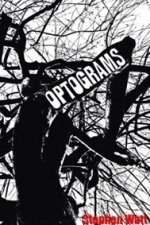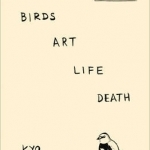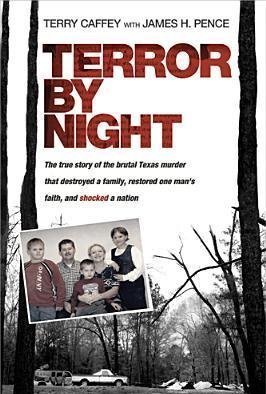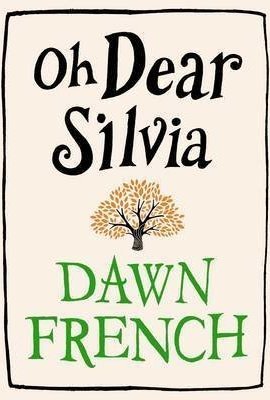Search
Search results

Frederick, Conrad and Manfred of Hohenstaufen, Kings of Sicily: The Chronicle of Nicholas of Jamsilla 1210-1258
Book
In the decade following the death of Frederick II in 1250, his sons Conrad and Manfred had to defend...

Norman van Aken's Florida Kitchen
Book
"The big dog of Florida cooking."--Anthony Bourdain "An excellent collection of recipes that...
Eilidh G Clark (177 KP) rated Optograms in Books
May 13, 2017
Great Collection
Stephen Watt is a poet and spoken word artist from Dumbarton. I stumbled upon his work by accident, and was drawn by his likeness in style to a favourite poet of mine, Raymond Carver. Delighted by what I had read, I preceded to watch some of his spoken word performances on You Tube. I was not disappointed. Watt’s poetry and indeed his spoken word delivery, is smart, punchy, intelligent and contemporary. I was delighted to be offered the opportunity to review his new poetry pamphlet Optograms, published by Wild Word press in 2016. Optograms is a wonderful representation of Watt’s finest work, and is a fresh new approach to Scottish poetry. The poet tackles some controversial topics such as prostitution, homelessness, and gender as well as delving into the more intimate topics such as miscarriage and Alzheimer’s. The imagery is his work is striking and each word and line carefully crafted, but it is the way in which the poems radiate emotion that make this work unique. The readers need look no further than the opening poem to get an understanding of the poet’s compassion and understanding of contemporary society. ‘Lipstick’ explores gender representation and discrimination,
I go to my room, wiping
the admirer’s lipstick clean
with tights beneath jeans
retrieved from a friend’s house,
and with the words
Big Girl’s Blouse
reverberating inside my head
This poem speaks volumes in so little words and the reader is forced to look inwardly at their own behaviour toward people who do not conform to the norm. Similarly, ‘Prayers to Aliens and Satellites’ is a raw and candid view of homelessness which digs deep into the readers conscience,
where bloodless, xylophonic fingers
sink into armpits –
petitioned hands closed to benefits
and the friendships of passersby.
Like the previous poem, ‘Prayers to Aliens and Satellites’ urges the reader to become more aware of the social problems in society. If these poems are not enough to capture the heart of the reader, Watt surprises us with his heart crushing honesty in poems such as ‘Clinics Lip’ – a grief stricken account of miscarriage,
A husband, once the acme of affection,
now lollygagging in the garden;
crossmaker in waiting
for the small plot earmarked for the hill’s crest.
My own personal favourite is ‘Trouble was Someone Else’s Kid’, a short account of childhood memories, like a fragment of memoir condensed into neatly arranged stanza’s. There is something funny yet tragic about this poem that brought to me both nostalgia and a desire to relive my own fading youth.
We moved in shadows, kept the lid
on, as if peanut butter sandwiches
had pasted our lips together.
Other neighbourhoods sizzled
with pyromaniacs and politics,
alcoholics who played tin whistles
when Di and Charles got hitched.
These are only a few of the delights that can be found in this little treasure of a pamphlet and I would urge poetry lovers as well as those who are new to poetry to seek out a copy of this work. With twenty-six wonderful poems Optograms, is undoubtedly one of the best collections of contemporary Scottish poetry that I have read.
To learn more about the Stephen Watt you can visit The Scottish Poetry Library, http://www.scottishpoetrylibrary.org.uk/poetry/poets/stephen-watt or like his Facebook page @StephenWattSpit. Optograms, can be purchased from stephenwattspit299@gmail.com or the publisher Marc Sherland marcsherland@me.com at Wild Word Press.
I go to my room, wiping
the admirer’s lipstick clean
with tights beneath jeans
retrieved from a friend’s house,
and with the words
Big Girl’s Blouse
reverberating inside my head
This poem speaks volumes in so little words and the reader is forced to look inwardly at their own behaviour toward people who do not conform to the norm. Similarly, ‘Prayers to Aliens and Satellites’ is a raw and candid view of homelessness which digs deep into the readers conscience,
where bloodless, xylophonic fingers
sink into armpits –
petitioned hands closed to benefits
and the friendships of passersby.
Like the previous poem, ‘Prayers to Aliens and Satellites’ urges the reader to become more aware of the social problems in society. If these poems are not enough to capture the heart of the reader, Watt surprises us with his heart crushing honesty in poems such as ‘Clinics Lip’ – a grief stricken account of miscarriage,
A husband, once the acme of affection,
now lollygagging in the garden;
crossmaker in waiting
for the small plot earmarked for the hill’s crest.
My own personal favourite is ‘Trouble was Someone Else’s Kid’, a short account of childhood memories, like a fragment of memoir condensed into neatly arranged stanza’s. There is something funny yet tragic about this poem that brought to me both nostalgia and a desire to relive my own fading youth.
We moved in shadows, kept the lid
on, as if peanut butter sandwiches
had pasted our lips together.
Other neighbourhoods sizzled
with pyromaniacs and politics,
alcoholics who played tin whistles
when Di and Charles got hitched.
These are only a few of the delights that can be found in this little treasure of a pamphlet and I would urge poetry lovers as well as those who are new to poetry to seek out a copy of this work. With twenty-six wonderful poems Optograms, is undoubtedly one of the best collections of contemporary Scottish poetry that I have read.
To learn more about the Stephen Watt you can visit The Scottish Poetry Library, http://www.scottishpoetrylibrary.org.uk/poetry/poets/stephen-watt or like his Facebook page @StephenWattSpit. Optograms, can be purchased from stephenwattspit299@gmail.com or the publisher Marc Sherland marcsherland@me.com at Wild Word Press.
Hazel (1853 KP) rated Birds Art Life Death: A Field Guide to the Small and Significant in Books
May 23, 2017
Unconventional Field Guide
This eBook was provided by the publisher via NetGalley in exchange for an honest review
There comes a time when novelists, as with any creative professional, become unmotivated or at a loss as to what to write about – writer’s block. Such an occurrence happened to children’s novelist, Kyo Maclear. Through the work of her songwriter husband, Maclear discovers a musician struggling with the demands of his career in a competitive world, causing anxiety and depression. In order to distance himself from the stresses of his employment, the musician finds solace in bird watching. Intrigued as to what prompted his ardent interest in birds, Maclear tags along with him for a year, and thus, Birds Art Life Death: A Field Guide to the Small and Significant was born.
To preempt any confusion, despite what the title may suggest, this book is not a field guide about birds. When Maclear began talking to the musician (who remains anonymous except for a mention in the acknowledgements), she was completely nescient on the subject of birds and had a lot to learn. Although some facts are stated in the narrative, Birds Art Life Death is more a reflective memoir of the author’s life. Using bird watching as a key example, Maclear explores the ways artists of all kinds have retreated from the pressures of everyday life in order to take time to appreciate the smaller, less celebrated aspects.
Bird watching, in particular, provides the musician and Maclear the opportunity to sit still (literally) and just be. Paying attention to the numerous habitats of the winged-creatures provides the author with a new outlook on life, and fodder to include in future works (hence this book). It also gives her the opportunity to reflect on her past, her parents – particularly her anticipatory grief toward her elderly father – her husband, and her sons. In fact, the author’s own life features as heavily as the bird watching trips she goes on.
Written in chronological order from winter through to autumn, Maclear’s knowledge of birds increases, as does her awareness of the world and life around her. However, her sequence of events is often interrupted by retrospective thought and additional research, which causes the book to head in too many directions at once. It is as though the author’s disorganized mind has been spilled onto the page for everyone to see.
It is clear, however, that Maclear has put an exceptional amount of time into researching the topic of birds. She does not regurgitate factual, mundane information about the species; instead she has delved deeper and from an artistic point of view, to discover so much more than an encyclopedic textbook would provide.
From a myriad of resources, Maclear has pulled out quotes from bird enthusiasts and creative individuals alike to emphasise the effects birds have had on people’s lives and artistic careers. Interestingly, many artists and authors have found the delicate creatures fascinating and included them in their works, for example: Leonardo da Vinci, Charles Dickens, William Faulkner and Iris Murdoch.
Birds Art Life Death is unlikely to increase your knowledge of birds or bird watching, however it may inspire you to take time out to explore and enjoy nature. Whether you are a creative individual in need of a break, or an office worker desperately wanting some fresh air, Maclear encourages you to step back from the trials of life and find pleasure in the little, but highly significant, facts of being.
There comes a time when novelists, as with any creative professional, become unmotivated or at a loss as to what to write about – writer’s block. Such an occurrence happened to children’s novelist, Kyo Maclear. Through the work of her songwriter husband, Maclear discovers a musician struggling with the demands of his career in a competitive world, causing anxiety and depression. In order to distance himself from the stresses of his employment, the musician finds solace in bird watching. Intrigued as to what prompted his ardent interest in birds, Maclear tags along with him for a year, and thus, Birds Art Life Death: A Field Guide to the Small and Significant was born.
To preempt any confusion, despite what the title may suggest, this book is not a field guide about birds. When Maclear began talking to the musician (who remains anonymous except for a mention in the acknowledgements), she was completely nescient on the subject of birds and had a lot to learn. Although some facts are stated in the narrative, Birds Art Life Death is more a reflective memoir of the author’s life. Using bird watching as a key example, Maclear explores the ways artists of all kinds have retreated from the pressures of everyday life in order to take time to appreciate the smaller, less celebrated aspects.
Bird watching, in particular, provides the musician and Maclear the opportunity to sit still (literally) and just be. Paying attention to the numerous habitats of the winged-creatures provides the author with a new outlook on life, and fodder to include in future works (hence this book). It also gives her the opportunity to reflect on her past, her parents – particularly her anticipatory grief toward her elderly father – her husband, and her sons. In fact, the author’s own life features as heavily as the bird watching trips she goes on.
Written in chronological order from winter through to autumn, Maclear’s knowledge of birds increases, as does her awareness of the world and life around her. However, her sequence of events is often interrupted by retrospective thought and additional research, which causes the book to head in too many directions at once. It is as though the author’s disorganized mind has been spilled onto the page for everyone to see.
It is clear, however, that Maclear has put an exceptional amount of time into researching the topic of birds. She does not regurgitate factual, mundane information about the species; instead she has delved deeper and from an artistic point of view, to discover so much more than an encyclopedic textbook would provide.
From a myriad of resources, Maclear has pulled out quotes from bird enthusiasts and creative individuals alike to emphasise the effects birds have had on people’s lives and artistic careers. Interestingly, many artists and authors have found the delicate creatures fascinating and included them in their works, for example: Leonardo da Vinci, Charles Dickens, William Faulkner and Iris Murdoch.
Birds Art Life Death is unlikely to increase your knowledge of birds or bird watching, however it may inspire you to take time out to explore and enjoy nature. Whether you are a creative individual in need of a break, or an office worker desperately wanting some fresh air, Maclear encourages you to step back from the trials of life and find pleasure in the little, but highly significant, facts of being.
Terror by Night: the true story of the brutal texas murder that destroyed a family, restored one man’s faith, and shocked a nation.
by Terry Caffey with James H. Pence
Genre: True Crime, Christian, memoir
Rating: 5
My summary: Terry woke up one night and saw his daughter’s ex-boyfriend standing in front of him with a gun. Charlie shot him several times, killed his wife, then him and his friend brutally killed his two sons. They set the house on fire, thinking everyone was dead. Terry managed to escape by God’s life-preservation alone, and made the long trek through the woods to the neighbor’s house. All Terry wanted was to die and live in Heaven with his family. But he stayed alive through sheer will-power and God’s grace. He made it to the neighbor’s house, identified the killer, then colapsed, hoping never to wake up again.
He woke up.
and He has to live with what happened for the rest of his long life.
Terry suffers from suicidal thoughts and depression, overdoses on his drugs, and can’t sleep at night because of his fear.
But God can take any situation and turn it around… Terry went back to where his house was to have a heart-to-heart with God. Terry found something there that was preserved through weeks of rain and wind, and yet was still readable. It was a page from James Pence’s novel Blind Sight (though he didn’t know it at the time) and the first lines he read were these: “I couldn't understand why You would take my family and leave me to struggle along without them. And I guess I still don’t totally understand that part of it. But I do believe that You’re sovereign; You’re in control.” Terry eventually found out through some hard hunting that the character in the book who was speaking had lost his wife and children. It was as if that book was written about him.
Terry’s life changed drastically. He went into ministry, he got re-married… and he learned what unconditional love, forgiveness, and trusting God really meant.
Review: Terror by Night was an absolutely stunning book in every sense of the word. The awful things that happened to Terry, and how God restored him, are amazing. Terror by Night is like Job all over again. God took everything away from Terry—his family were dead and his house was charcoal. Terry suffered tremendously, but God restored him. God used him to restore other people. And God blessed him and gave back what he had taken away.
This book is a testimony of how God can take anything and turn it around for good, how everything that happens is His will, and how He is the one and only thing we can always trust.
A powerful message, an amazing testimony, a picture of forgiveness, uplifting, encouraging, and brutally beautiful, Terror by Night will stay with you for the rest of your life.
Content: 100% clean
Recommendation: I whole-heartedly recommend Terror by Night to everyone over the age of 14. Terror by Night is extremely emotional, several times I had to stop and put it down. There were also some disturbing images of how the children were killed. It would probably make you cry if you read it in one sitting. However, I still think everyone should read it.
by Terry Caffey with James H. Pence
Genre: True Crime, Christian, memoir
Rating: 5
My summary: Terry woke up one night and saw his daughter’s ex-boyfriend standing in front of him with a gun. Charlie shot him several times, killed his wife, then him and his friend brutally killed his two sons. They set the house on fire, thinking everyone was dead. Terry managed to escape by God’s life-preservation alone, and made the long trek through the woods to the neighbor’s house. All Terry wanted was to die and live in Heaven with his family. But he stayed alive through sheer will-power and God’s grace. He made it to the neighbor’s house, identified the killer, then colapsed, hoping never to wake up again.
He woke up.
and He has to live with what happened for the rest of his long life.
Terry suffers from suicidal thoughts and depression, overdoses on his drugs, and can’t sleep at night because of his fear.
But God can take any situation and turn it around… Terry went back to where his house was to have a heart-to-heart with God. Terry found something there that was preserved through weeks of rain and wind, and yet was still readable. It was a page from James Pence’s novel Blind Sight (though he didn’t know it at the time) and the first lines he read were these: “I couldn't understand why You would take my family and leave me to struggle along without them. And I guess I still don’t totally understand that part of it. But I do believe that You’re sovereign; You’re in control.” Terry eventually found out through some hard hunting that the character in the book who was speaking had lost his wife and children. It was as if that book was written about him.
Terry’s life changed drastically. He went into ministry, he got re-married… and he learned what unconditional love, forgiveness, and trusting God really meant.
Review: Terror by Night was an absolutely stunning book in every sense of the word. The awful things that happened to Terry, and how God restored him, are amazing. Terror by Night is like Job all over again. God took everything away from Terry—his family were dead and his house was charcoal. Terry suffered tremendously, but God restored him. God used him to restore other people. And God blessed him and gave back what he had taken away.
This book is a testimony of how God can take anything and turn it around for good, how everything that happens is His will, and how He is the one and only thing we can always trust.
A powerful message, an amazing testimony, a picture of forgiveness, uplifting, encouraging, and brutally beautiful, Terror by Night will stay with you for the rest of your life.
Content: 100% clean
Recommendation: I whole-heartedly recommend Terror by Night to everyone over the age of 14. Terror by Night is extremely emotional, several times I had to stop and put it down. There were also some disturbing images of how the children were killed. It would probably make you cry if you read it in one sitting. However, I still think everyone should read it.
Rachel King (13 KP) rated Blue in Books
Feb 11, 2019
Getting into this book was a tad slow since there was alot of back story to get through before I felt like I understood what was occurring in the present time of the book. Once I got through that, there were a few things that I could easily predict about the plot. First, the plot would very much favor the father over the mother in regards to the relationship shared with the main character, fourteen-year-old Becky. Second, it is inevitable that Becky's leukemia is going to relapse. Third, this fantasy world of Tamarisk would somehow play a part in both Becky's disease and her parent's ugly divorce.
What I could not predict was how absolutely fascinating the world of Tamarisk is. I actually thought about researching all of the made-up names of the plants, animals, and geology before I completely realized the depth of creativity to which Becky and her father Chris went in the creation of this fantasy world. What began as a coping mechanism for a young child going through the rigors of chemotherapy became a world in an alternate universe that existed with its own laws of physics. I was completely enthralled by this unbelievable world of blue foliage, black dirt, microfarming, moldable crystal, smelling of chocolate and raspberries, and featuring transportation in the form of giant flying birds - and that is only the beginning of all that this world holds to tantalize the senses and ignite the imagination. Becky's voyages into Tamarisk alone are enough to fill countless children's stories that would hold any grown adult rapt with wonder.
On the alternate side of this fantastic world is the grievous reality of the ongoing feud between Chris and Polly, Becky's divorced parents. Even though Polly has remarried, she still harbors intensely negative feelings towards Chris. In addition, Chris's whole life is about finding ways to connect with Becky better, as the reader watches him fail at blind date after blind date. Becky wants so badly to hang onto her life that she lives in denial of her increasingly-severe symptoms. My heart went out to all of the characters at different points as I connected with the different emotions and situations. As a mother, I can not even fathom one of my children going through the horrors of childhood cancer, and as a wife, the thought of abandoning my spouse is inconceivable, especially during such a difficult time. My heart broke for Becky's best friend Lonnie, and I felt the awkward sadness of Becky's stepfather Al. These characters are as real as if this story were not fiction, but a memoir or biography.
I could not help noticing the parallels between belief in Tamarisk and the beliefs of Christianity. Polly either could not or would not believe in Tamarisk, and many of her arguments against it matched the common ones against a belief in the existence of God and Heaven.
The ending was bittersweet, but light on bitter and rich on sweet. I shed a tear, but Chris's perspective was very fitting for how I felt about this conclusion. This was a very, very good read that would enrich any reader's book collection. What I gained from this book will stick with me for a long time to come.
What I could not predict was how absolutely fascinating the world of Tamarisk is. I actually thought about researching all of the made-up names of the plants, animals, and geology before I completely realized the depth of creativity to which Becky and her father Chris went in the creation of this fantasy world. What began as a coping mechanism for a young child going through the rigors of chemotherapy became a world in an alternate universe that existed with its own laws of physics. I was completely enthralled by this unbelievable world of blue foliage, black dirt, microfarming, moldable crystal, smelling of chocolate and raspberries, and featuring transportation in the form of giant flying birds - and that is only the beginning of all that this world holds to tantalize the senses and ignite the imagination. Becky's voyages into Tamarisk alone are enough to fill countless children's stories that would hold any grown adult rapt with wonder.
On the alternate side of this fantastic world is the grievous reality of the ongoing feud between Chris and Polly, Becky's divorced parents. Even though Polly has remarried, she still harbors intensely negative feelings towards Chris. In addition, Chris's whole life is about finding ways to connect with Becky better, as the reader watches him fail at blind date after blind date. Becky wants so badly to hang onto her life that she lives in denial of her increasingly-severe symptoms. My heart went out to all of the characters at different points as I connected with the different emotions and situations. As a mother, I can not even fathom one of my children going through the horrors of childhood cancer, and as a wife, the thought of abandoning my spouse is inconceivable, especially during such a difficult time. My heart broke for Becky's best friend Lonnie, and I felt the awkward sadness of Becky's stepfather Al. These characters are as real as if this story were not fiction, but a memoir or biography.
I could not help noticing the parallels between belief in Tamarisk and the beliefs of Christianity. Polly either could not or would not believe in Tamarisk, and many of her arguments against it matched the common ones against a belief in the existence of God and Heaven.
The ending was bittersweet, but light on bitter and rich on sweet. I shed a tear, but Chris's perspective was very fitting for how I felt about this conclusion. This was a very, very good read that would enrich any reader's book collection. What I gained from this book will stick with me for a long time to come.
Heather Cranmer (2721 KP) rated Oh Dear Silvia in Books
Jun 7, 2018
I received this book for free through the Goodreads Firstreads program.
(This review can also be found on my blog <a href="http://themisadventuresofatwentysomething.blogspot.co.uk">The (Mis)Adventures of a Twenty-Something Year Old Girl</a>).
I love Dawn French! I think she is such a funny woman!! I was so happy to have won a copy of her fiction book entitled Oh Dear Silvia from Goodreads. However, once I started reading the book, it became apparent that I wasn't going to enjoy it.
Silvia is in a coma after falling from a balcony and hitting her head. Throughout her time in hospital, she is visited by family, her best friend, her ex-husband, her nurse, and her cleaner. Each has their own story to tell however odd it may be. Throughout this book, we will find out about who Silvia is.
The title of this book really works. After reading the book, I would say it definitely fits well with the story.
The cover of this book is quite bland. The tree on the cover of the book does have significance, but it's just rather boring. It wouldn't entice me to pick up this book to see what it's about. Surely, the cover could've been a bit more decorative.
The setting takes place mostly in suite 5 which is Silvia's room in hospital. The world building is alright. The memories of each visitor help set the story.
I found the pacing of Oh Dear Silvia to be extremely and painfully slow. At some points, I found myself skim reading the especially boring parts. I couldn't wait for this book to be over. There's not even one bit in this book where the pacing picks up. There's no real plot in this book, so there's definitely no plot twists. The pacing definitely lets this book down.
The dialogue is comedic at times which I found to be a small reprieve from the slowness of this book. Ed's dialogue really bored me.
The characters are well-developed which I found to be a relief. Each chapter of the book is told by someone who knows Silvia. The main characters that have their own chapters being Ed, Cat, Jo, Cassie, Winnie, and Tia. Ed is by far the most boring character that could ever be in a book. All he mostly talks about is his boring trees. Whilst I did find him to be a well-developed character, I found him extremely dull and found myself wishing that he'd just stop talking. Winnie and Tia were my favourite characters. Winnie has a big heart, and it really comes across in this book. Tia is from Indonesia so has a hard time pronouncing Silvia's surname which always made me laugh!! I found Tia and Jo to be the characters that brought the humour, and they delivered! Cat is the high strung character, and Cassie is the angry daughter. Each character has a unique personality. Well done to Dawn French for making each character unique! Through each of the characters' stories, we learn more and more about Silvia.
Even with the strong character personalities and comedic timing, this book still fell flat. I felt that this book was missing a plot. Oh Dear Silvia comes across more as a memoir about Silvia then anything else.
I wouldn't recommend this book to anyone except those who need help falling asleep. Dawn French is great, but this book just didn't do it for me.
(This review can also be found on my blog <a href="http://themisadventuresofatwentysomething.blogspot.co.uk">The (Mis)Adventures of a Twenty-Something Year Old Girl</a>).
I love Dawn French! I think she is such a funny woman!! I was so happy to have won a copy of her fiction book entitled Oh Dear Silvia from Goodreads. However, once I started reading the book, it became apparent that I wasn't going to enjoy it.
Silvia is in a coma after falling from a balcony and hitting her head. Throughout her time in hospital, she is visited by family, her best friend, her ex-husband, her nurse, and her cleaner. Each has their own story to tell however odd it may be. Throughout this book, we will find out about who Silvia is.
The title of this book really works. After reading the book, I would say it definitely fits well with the story.
The cover of this book is quite bland. The tree on the cover of the book does have significance, but it's just rather boring. It wouldn't entice me to pick up this book to see what it's about. Surely, the cover could've been a bit more decorative.
The setting takes place mostly in suite 5 which is Silvia's room in hospital. The world building is alright. The memories of each visitor help set the story.
I found the pacing of Oh Dear Silvia to be extremely and painfully slow. At some points, I found myself skim reading the especially boring parts. I couldn't wait for this book to be over. There's not even one bit in this book where the pacing picks up. There's no real plot in this book, so there's definitely no plot twists. The pacing definitely lets this book down.
The dialogue is comedic at times which I found to be a small reprieve from the slowness of this book. Ed's dialogue really bored me.
The characters are well-developed which I found to be a relief. Each chapter of the book is told by someone who knows Silvia. The main characters that have their own chapters being Ed, Cat, Jo, Cassie, Winnie, and Tia. Ed is by far the most boring character that could ever be in a book. All he mostly talks about is his boring trees. Whilst I did find him to be a well-developed character, I found him extremely dull and found myself wishing that he'd just stop talking. Winnie and Tia were my favourite characters. Winnie has a big heart, and it really comes across in this book. Tia is from Indonesia so has a hard time pronouncing Silvia's surname which always made me laugh!! I found Tia and Jo to be the characters that brought the humour, and they delivered! Cat is the high strung character, and Cassie is the angry daughter. Each character has a unique personality. Well done to Dawn French for making each character unique! Through each of the characters' stories, we learn more and more about Silvia.
Even with the strong character personalities and comedic timing, this book still fell flat. I felt that this book was missing a plot. Oh Dear Silvia comes across more as a memoir about Silvia then anything else.
I wouldn't recommend this book to anyone except those who need help falling asleep. Dawn French is great, but this book just didn't do it for me.
Hazel (1853 KP) rated Birds Art Life Death: A Field Guide to the Small and Significant in Books
Dec 7, 2018
<i>This eBook was provided by the publisher via NetGalley in exchange for an honest review</i>
There comes a time when novelists, as with any creative professional, become unmotivated or at a loss as to what to write about – writer’s block. Such an occurrence happened to children’s novelist, Kyo Maclear. Through the work of her songwriter husband, Maclear discovers a musician struggling with the demands of his career in a competitive world, causing anxiety and depression. In order to distance himself from the stresses of his employment, the musician finds solace in bird watching. Intrigued as to what prompted his ardent interest in birds, Maclear tags along with him for a year, and thus, <i>Birds Art Life Death: A Field Guide to the Small and Significant</i> was born.
To preempt any confusion, despite what the title may suggest, this book is not a field guide about birds. When Maclear began talking to the musician (who remains anonymous except for a mention in the acknowledgements), she was completely nescient on the subject of birds and had a lot to learn. Although some facts are stated in the narrative, <i>Birds Art Life Death</i> is more a reflective memoir of the author’s life. Using bird watching as a key example, Maclear explores the ways artists of all kinds have retreated from the pressures of everyday life in order to take time to appreciate the smaller, less celebrated aspects.
Bird watching, in particular, provides the musician and Maclear the opportunity to sit still (literally) and just be. Paying attention to the numerous habitats of the winged-creatures provides the author with a new outlook on life, and fodder to include in future works (hence this book). It also gives her the opportunity to reflect on her past, her parents – particularly her anticipatory grief toward her elderly father – her husband, and her sons. In fact, the author’s own life features as heavily as the bird watching trips she goes on.
Written in chronological order from winter through to autumn, Maclear’s knowledge of birds increases, as does her awareness of the world and life around her. However, her sequence of events is often interrupted by retrospective thought and additional research, which causes the book to head in too many directions at once. It is as though the author’s disorganized mind has been spilled onto the page for everyone to see.
It is clear, however, that Maclear has put an exceptional amount of time into researching the topic of birds. She does not regurgitate factual, mundane information about the species; instead she has delved deeper and from an artistic point of view, to discover so much more than an encyclopedic textbook would provide.
From a myriad of resources, Maclear has pulled out quotes from bird enthusiasts and creative individuals alike to emphasise the effects birds have had on people’s lives and artistic careers. Interestingly, many artists and authors have found the delicate creatures fascinating and included them in their works, for example: Leonardo da Vinci, Charles Dickens, William Faulkner and Iris Murdoch.
<i>Birds Art Life Death</i> is unlikely to increase your knowledge of birds or bird watching, however it may inspire you to take time out to explore and enjoy nature. Whether you are a creative individual in need of a break, or an office worker desperately wanting some fresh air, Maclear encourages you to step back from the trials of life and find pleasure in the little, but highly significant, facts of being.
There comes a time when novelists, as with any creative professional, become unmotivated or at a loss as to what to write about – writer’s block. Such an occurrence happened to children’s novelist, Kyo Maclear. Through the work of her songwriter husband, Maclear discovers a musician struggling with the demands of his career in a competitive world, causing anxiety and depression. In order to distance himself from the stresses of his employment, the musician finds solace in bird watching. Intrigued as to what prompted his ardent interest in birds, Maclear tags along with him for a year, and thus, <i>Birds Art Life Death: A Field Guide to the Small and Significant</i> was born.
To preempt any confusion, despite what the title may suggest, this book is not a field guide about birds. When Maclear began talking to the musician (who remains anonymous except for a mention in the acknowledgements), she was completely nescient on the subject of birds and had a lot to learn. Although some facts are stated in the narrative, <i>Birds Art Life Death</i> is more a reflective memoir of the author’s life. Using bird watching as a key example, Maclear explores the ways artists of all kinds have retreated from the pressures of everyday life in order to take time to appreciate the smaller, less celebrated aspects.
Bird watching, in particular, provides the musician and Maclear the opportunity to sit still (literally) and just be. Paying attention to the numerous habitats of the winged-creatures provides the author with a new outlook on life, and fodder to include in future works (hence this book). It also gives her the opportunity to reflect on her past, her parents – particularly her anticipatory grief toward her elderly father – her husband, and her sons. In fact, the author’s own life features as heavily as the bird watching trips she goes on.
Written in chronological order from winter through to autumn, Maclear’s knowledge of birds increases, as does her awareness of the world and life around her. However, her sequence of events is often interrupted by retrospective thought and additional research, which causes the book to head in too many directions at once. It is as though the author’s disorganized mind has been spilled onto the page for everyone to see.
It is clear, however, that Maclear has put an exceptional amount of time into researching the topic of birds. She does not regurgitate factual, mundane information about the species; instead she has delved deeper and from an artistic point of view, to discover so much more than an encyclopedic textbook would provide.
From a myriad of resources, Maclear has pulled out quotes from bird enthusiasts and creative individuals alike to emphasise the effects birds have had on people’s lives and artistic careers. Interestingly, many artists and authors have found the delicate creatures fascinating and included them in their works, for example: Leonardo da Vinci, Charles Dickens, William Faulkner and Iris Murdoch.
<i>Birds Art Life Death</i> is unlikely to increase your knowledge of birds or bird watching, however it may inspire you to take time out to explore and enjoy nature. Whether you are a creative individual in need of a break, or an office worker desperately wanting some fresh air, Maclear encourages you to step back from the trials of life and find pleasure in the little, but highly significant, facts of being.
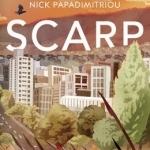
Scarp
Book
es it's difficult to define exactly what this book is: it mixes autobiography, local history,...
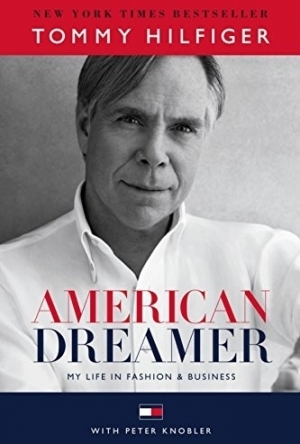
American Dreamer: My Life in Fashion & Business
Peter Knobler and Tommy Hilfiger
Book
In this tale of grit and glamour, setbacks and comebacks, business and pop culture icon Tommy...
